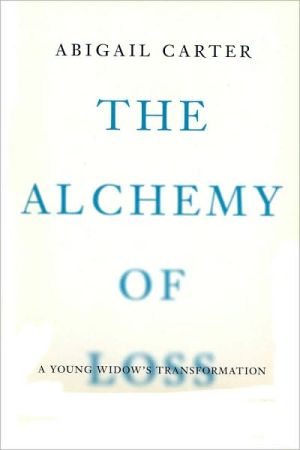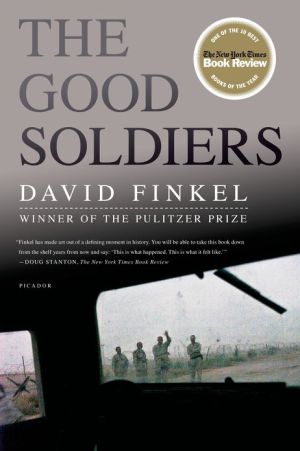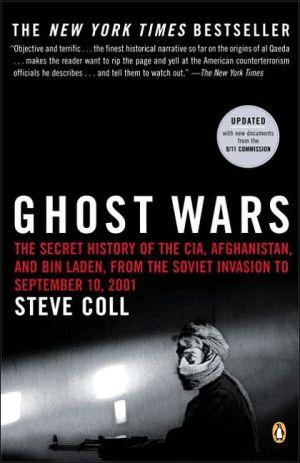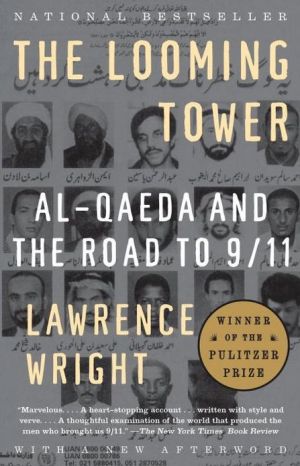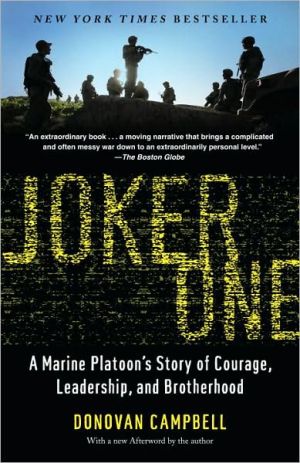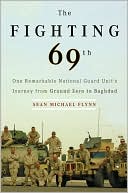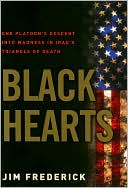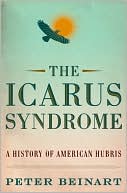The Alchemy of Loss: A Young Widow's Transformation
"MY DEAD HUSBAND'S CLOTHES closet held me hostage for almost four years. In the early days after Arron's death, his clothes hung patiently in his closet waiting for his return. I would open the closet doors to see his shoes staring at me expectantly, longing for the warmth of his feet. I would stand inside the folding louver doors and cry deep, wet tears into his blue terrycloth bathrobe that still smelled of him. I fingered the striped flannel shirt that everyone hated but him. His socks...
Search in google:
"MY DEAD HUSBAND'S CLOTHES closet held me hostage for almost four years. In the early days after Arron's death, his clothes hung patiently in his closet waiting for his return. I would open the closet doors to see his shoes staring at me expectantly, longing for the warmth of his feet. I would stand inside the folding louver doors and cry deep, wet tears into his blue terrycloth bathrobe that still smelled of him. I fingered the striped flannel shirt that everyone hated but him. His socks were piled impossibly high in a rolling wire mesh basket. Another level of the basket held his underwear. They waited for him, as did I. I would close the closet doors and fling myself face down onto the bed in dramatic sobs. The closet became a litmus test of my grief. Open door, cry, close door, pass test. Still grieving. Repeat in four weeks.Soon, the act became almost masochistic. A crying dry-spell would send me back to the closet for a rain dance of tears. A whiff of his bathrobe was a reliable shaman. The tears would cleanse my body, releasing me from the grip of grief. Relief washed over me--I still mourned for my husband honorably, appropriately, with tears and sobs.My brother [Matt] and Arron's best friend, Bruce, visited for Thanksgiving. I saw my opportunity to bestow some of Arron's favorite items on the people he loved. Giving his clothes and shoes to loved ones seemed preferable to hauling garbage bags full of him to Goodwill. I watched as my brother tried on his cowboy boots--tall, slender, and full of swagger. Matt shrank in my mind to a ten-year old boy, trying on his older mentor's boots, proud, but not certain he would ever fill them. He strutted around uncertainly claiming to be honored to own them. I knew he would never wear them. Those boots were so ubiquitous with Arron that they would be unfathomable on anyone else. I had hoped that my brother might take on some of Arron's characteristics when he wore them, that the boots were somehow magic, but his tiptoeing inside of them, not wanting to fully plant his foot into them revealed the truth.Bruce pulled Arron's favorite leather jacket around his torso, trying to make the buttons meet. The coat, which had fallen to Arron's hips, reached halfway to Bruce's knees. It took on a new persona on Bruce's body and molded itself instantly to him. It no longer resembled anything Arron had ever worn.Despite the ill-fittings, I was glad for these reminders to be gone; to be the responsibility of someone else. I suspected that they would wind up at Goodwill someday, but I didn't want to know, I didn't want to be the one who took them there.My brother and Bruce walked off feigning pleasure at their new acquisitions, but really I think they were pleased at having helped me through a difficult process. They seemed to understand by the look in my eyes, my relief at having purged a little of Arron in a loving way." Library Journal Carter's husband died in the Twin Towers on 9/11; this is the ably told story of her enlightening journey from utter shock and emptiness to inner calm and wholeness. Throughout her grieving, she raised two small children, attended memorial after memorial, endured changing family dynamics, and navigated the complicated maze of 9/11 widow financial documents. A much-needed book for an underserved audience.-Elizabeth Brinkley
[ 1 ]\ september 11, 2001\ I was carrying Carter, my two-year-old, and standing in the kitchen putting my daughter Olivia's lunch into her backpack when the phone rang. I hesitated, debating whether to answer it, knowing we had only a few minutes to catch her school bus. 'Here, finish this.' I handed her the bag so she could zip it up and grabbed the phone. 'Hello?'\ 'Ab, Ab! There's an emergency. I'm in the World Trade Center and there's been a bomb. Ab, are you there?' It was my husband, Arron, and he was speaking slowly, articulating his words. I imagined a small firecracker in a bathroom somewhere. Surely Arron was just being dramatic.\ I tried to answer him, but he was unable to hear me and hung up. A second later, the phone rang again. I answered before the first ring fully sounded. I could sense his urgency, but I also wanted the call over with. Olivia was about to miss her bus.\ 'Ab, Ab, I'm at Windows on the World in the World Trade Center,' he said slowly. I knew he had to attend a trade show that day in downtown Manhattan somewhere, but I didn't know where exactly he would be. 'There's been a bomb. You need to call the police! Ab?' I was still holding Olivia's lunch box, helping her to stuff it into her backpack as he spoke.\ 'Yes, yes,' I said. 'I'm here. Okay. Okaaay. I'll call them right now.' We hung up. I was exasperated. It was Olivia's second day of first grade. Our nanny, Martha, had taken the day off and I was rushing through my morning without her help. Why couldn't he call 9-1-1 himself, I wondered. Why was he making such a big deal out of this?\ My call reached our local dispatcher at the Montclair, New Jersey, police department. I felt silly explaining that my husband thought there had been a bomb in the World Trade Center.\ 'I haven't heard anything about a bomb, but we will call nypd and call you back,' the dispatcher said calmly. Our town, a bedroom community for New York, was only twelve miles west of Manhattan.\ I stood in the driveway, unsure how far the signal of the cordless phone would travel. 'Liv, can you walk from here to the bus stop by yourself?'\ 'No, Mama! You have to come.'\ 'Okay, okay,' I said, annoyed. I rushed her down the street, just as the bus arrived.\ She stepped into it and turned to me from the stairs. 'Who were you talking to?'\ 'Daddy called and said there is a bomb in New York! Bye-bye, honey!' She looked confused as I waved, pretending frivolity. Carter was still strapped to my hip and I watched Olivia take her seat.\ As I walked back to the house, the police called back. 'We have talked to nypd. A plane has hit the building. I suggest you turn on your tv.'\ 'All right,' I said feebly. I pictured something small, like a Cessna, as I rushed into the house and turned the TV on.\ Thick smoke both poured down from the top of the impossibly tall building like water and billowed up into the indigo blue sky. The picture switched to a shot of another building, this one a pristine twin of the other. Blinking, I stepped backwards as a sudden burst of orange flame seemed to envelop the tv. Carter clung to my hip and I sensed him looking at me fearfully. I hugged him tighter, not wanting to avert my eyes from the screen.\ Suddenly, the screen went blank. I froze for a second, then frantically bent down to fumble with buttons on the tv. 'Oh no! No!' I mumbled. Several channels flipped by, all black. Finally I landed on one and the nightmare returned: a building engulfed in sinister black smoke, a second now with an orange flame eating at the wound in its upper floors. 'It seems another plane has hit the South Tower,' the reporter was saying. A different camera angle proved his point in a replay. The huge plane careened crazily to the right and then slammed into the building. Another groan rose up from the pit of my stomach, and I began to shake.\ 'Oh, Fabbo . . .' I moaned Arron's nickname, wanting to jump into the tv.\ 'Please no. No, no, no, no, no,' I groaned involuntarily from somewhere deep in my chest. I crouched down onto the floor, sliding my fingers down the screen, as though I might somehow be able to reach Arron. I put Carter onto his feet, but he clung to my waist. I carefully dialed the numbers that I knew by heart.\ 'This is Voicestream. Due to technical difficulties, we cannot connect your call at this time.' The message seemed foreboding. I redialed again and again.\ Finally one call got through. 'You have reached the voice mail of Arron Dack. . . .' His voice was reassuring. Surely he would pick up his messages.\ 'Fabbo, please call me. I am so scared for you. I love you. . . .'\ I should call others. Alert them to what? It all seemed impossible. I left Arron's mother, Selena, a message at her home in Port Hope, Ontario.\ 'Call me right away!' I hoped my voice sounded calm. I didn't call anyone else, wanting to leave the line free in case he called me. I wished I had signed up for call waiting. I willed the phone to ring.\ On tv, the smoke was still billowing from the tops of the buildings. It would be horrific inside. What could he be thinking? Was he scared? Did he know yet that planes had hit the building and not bombs? Was he running down the stairs or was he writing me a good-bye letter? 'Dear Ab,' it would say. 'Take care of the kids. I love you all so much. . . .' I choked. Why was I thinking such thoughts? He was dashing down long flights of stairs with hundreds of others joining him at each floor. It would take a while, but he would get down. He would be tired, exhausted by the time he reached home. Did I have beer? Maybe I should take some steaks out to grill tonight, I thought, but I did not get up.\ Harley, our golden retriever, barked loudly as two Brazilian nannies, friends of Martha, appeared at the door accompanied by their two young charges. The sun behind them was blinding. They had heard me at Olivia's bus stop and knew things were not right. They had already heard about the planes, the buildings, and came to make sure that I was okay. But they grew silent when they saw my face. Carter and the two other little boys were thrilled at the impromptu playdate and immediately dove into a bucket of noisy cars and fire trucks. Sirens began to blare.\ 'My uncle, he there, maybe. He sometimes work in building,' Maria said, her accent thick.\ 'Oh no!' I replied. 'I'm so sorry.'\ We sat silent in our thoughts, watching the tragedy unfold on tv.\ Then the screen turned white with dust or smoke. 'It seems that a bomb has gone off!' the reporter declared. I stopped breathing. The whiteness was billowy, almost beautiful as it slowly draped and caressed the air. 'No, it seems that one of the towers is collapsing!' The reporter sounded incredulous.\ A loud ring in my hand startled me out of my momentary stasis. I was shaking as I answered. 'Hello?' my voice cracked. 'Arron?'\ 'No, it's me, Selena. What's going on?'\ 'Turn on your tv!' I screamed.\ 'Okay,' she said, annoyingly calm. From her small town in Ontario, she was unaware of what was happening in New York. She could not know the terror that I was witnessing as I spoke to her.\ 'Is it on yet?' I asked, watching the dust fill the sky.\ 'Which channel?' she asked, still too calm.\ 'Any channel! Just turn on the damn tv!' My patience was depleted. 'The fucking building is falling down right now! You're missing it! Hurry!'\ I don't know what we said to each other once Selena turned on her tv. I did not register her reaction. I just made her get off the line in case Arron called. I walked outside, dazed, still clutching the phone. The nannies hurried away, taking Carter with them.\ Minutes later, I was sitting on the steps of our wide front porch, uncomfortable in the too-tight workout gear I had donned that morning for a kickboxing class. Only an hour had passed since Arron's phone call, and yet it felt like it must have been yesterday or last year. The news had spread quickly around the street and some of my neighbors were now milling around my lawn, chatting quietly. None of us were sure where in the building Windows on the World was, though someone thought it was a restaurant at the top, and we did not know if it was in the building that was still standing or the one that had just fallen. There was talk about how handy Arron is . . . was? How he, of all people, could get out of any situation, like MacGyver. There was laughter at the thought of him rescuing himself with duct tape.\ I continued to clutch the phone for dear life. Kathleen, the human resources director from Arron's company, Encompys, called to tell me that she had managed to contact Jeff, one of the two people at the trade show with Arron. From Jeff we learned that everyone at the trade show had moved into a corner office and was waiting to be evacuated, on the 106th floor of one of the buildings. Unimaginably high. 'Waiting' seemed like a bad word. They needed to get out as fast as they could.\ I received another call from the Montclair police dispatch, Officer Wyatt, the same officer I had spoken to when I had initially called 9-1-1.\ 'I just wanted to see if you had heard from your husband,' Officer Wyatt said.\ 'No, I haven't.'\ 'I'm sorry. Is there anything I can do?'\ 'Well, I know he's in Windows on the World, but I still don't know which building it's in. Is it in the one that fell down or the one that's still standing? That's what I really need to know.'\ 'I understand. I'm not really sure,' he said. 'But I'll try to find out. It seems to me that there was a restaurant in both buildings.'\ 'Oh. Well, if you could find out for me, that would be great.' I tried to sound upbeat, but I suspect my voice was monotone. In the end, of course, it didn't really matter.\ I looked up to see one of my neighbors striding across the street, making a beeline toward me. I knew from the look on his face that it was more bad news even before he told me that the second building had fallen. 'I know' was all I could think to say before my world tilted and became a fog.\ The sun dropped in the sky. Around four o'clock I saw another one of my neighbors coming home. He crossed the street when he saw me. Brian worked on Wall Street, so I was surprised that he looked so immaculate, unlike the ghostly figures I had seen on tv, covered in dust. His eyes, though, were sad, weary. I hated imagining all the people he must have known who worked in the buildings.\ 'I heard about Arron. I'm so sorry. But don't lose hope. It's really crazy downtown. I walked out of my building before the South Tower fell and walked to the ferry. I waited hours to get on and then hitched a ride to Montclair. There are long lineups at every phone booth, the subway is closed, the streets are jammed with people walking. I'm sure Arron will get home. It's just going to take a while.' He was talking fast, and slightly nervously, trying to convince both of us that Arron was safe.\ But Brian gave me some hope. I imagined Arron, filthy, smelly, unable or too impatient to wait for a phone, his cell phone useless. Like Brian, he would be quiet, shaken, subdued when he arrived. Or perhaps he would be excited, talking incessantly, telling me all the stories, his adventure of getting home, all the people he had helped or who had helped him along the way. It would be over a beer, he would be clean from a shower, and we would be relaxing outside, grilling the steaks that I hadn't taken out of the freezer. He would be worried about some of the people he knew who were missing.\ My steak dinner fantasies were interrupted by talk of calling hospitals. Another neighbor was going into the city to look for a friend, using his status as a doctor to visit hospitals. Would I like him to search for Arron, too? But Arron wasn't lost, I thought. He knew his way home and would call. Soon. Or perhaps none of this had happened and he was just away, on another business trip. He wasn't actually in the city. He was fine. Just couldn't get to a phone. Yes, look for Arron if you wish, but he won't be there.\ Olivia came home from school to a house full of people. 'Mommy, a boy on my bus said that two bad guys drove a plane into some buildings in New York!' she said breathlessly.\ 'Yes, I know,' was my only response. I was relieved that she hadn't made the connection with Arron's call that morning.\ As the evening wore on, Carter was returned to me by the nannies, fed and ready for bed. Somehow I managed to give him a bottle, and mercifully he fell asleep without a fight. When I put Olivia to bed, she asked, 'Where's Daddy?' All I could say was, 'I don't know sweetie, he must be stuck in New York.' Thankfully, she seemed content with that answer.\ Neighbors had been coming with food that no one ate. Someone made coffee. Now that the kids were asleep, someone else turned the tv back on, which was showing repeats of the day's terrible images. I sat close to the tv so I could watch the crowd scenes for signs of Arron. But there was nothing to see. The newscaster kept repeating the phrases 'emergency rooms empty,' 'rescue efforts underway,' 'many still missing' over and over while images played of idle doctors pacing outside of hospital doorways. Hundreds, possibly thousands, were said to be dead or missing. Some friends arrived and I ushered them into the kitchen so we wouldn't disturb those watching tv.\ 'What can we do?' my friends pleaded as they leaned against my counter.\ I became calm and rational. I had to attend to the needs of my children, and find a way to help my husband. 'The reality is that Arron might not come back. What am I going to tell the kids? I'm going to have to say something tomorrow. I could use a book to tell me how.'\ An hour later, I was handed three books on grieving in children, fresh from a bookstore. Surely it was too soon to be thinking about grief. Still, I hid in my bedroom and flipped through the first, When Children Grieve, by John W. James, Russell Friedman, and Dr. Leslie Landon Matthews. According to the authors, I was in control of how my kids would grieve. My actions would model grieving and they would follow my lead. I had to put the oxygen mask on myself before I could assist my children.\ My neighbors were still in my home at 2:00 am, begging me to go to bed. But I had to wait up for him. I wanted to be awake when he returned. I turned on my computer and sent e-mails to everyone I had an address for. 'Please pray for him,' I typed. Isn't that what you say in these situations? I had never prayed a day in my life, but now I wished I knew how. 'Please God, let him come home.' As I wrote my inadequate prayers, it sank in deeper. What if he never came home? What if he really was gone? What if? I squeezed my eyes shut, pushing the thoughts away.\ I was still glued to the computer at 4:00 am. Regular phone service was unreliable, and I had stopped calling Arron's cell phone hours ago. It was too painful to hear his business-like voice telling me to leave a message, or to get a busy signal, as though he might be trying to call me at the same moment. I chastised myself for not thinking of e-mailing him sooner.\ Fab:\ I love you. Please e-mail me if you get this.\ Love, lb\ As I always had, I signed 'lb,' short for Lemonbird, Arron's nickname for me.\ I tried not to watch my computer's clock, but I couldn't keep my eyes from darting to it. Each minute that ticked by diminished the possibility of Arron's return. The building was too huge. He was too high up. I did the math. One minute per floor, that's 106 minutes to get down, if he left immediately. Too long. The building fell within 90 minutes. He didn't make it. It was impossible. I knew the truth, but I was not yet ready to admit it. I hated my pragmatism.\ I found websites with hundreds of 'missing person' reports. So many of the postings were the same: 'He was on the 105th floor of Tower 1. . . .' I scanned for the words 'Windows on the World' but didn't find any.\ I posted a picture of us all that my neighbor Diane had just e-mailed me, despite the hour. It had been taken the previous Christmas. In it, we were a whole family. Carter sat in my lap drinking a bottle, and Arron clutched his small foot. Arron's other arm was wrapped securely around a pigtailed Olivia in a red dress, pinching her own cheeks, his hand resting on her knee.\ I added a description of Arron. 'He was wearing a red tie. . . . He had a large scar on the left side of his forehead. . . . He wore a partial denture. . . .' I wanted to add the more important details: He had an infectious giggle. . . . He had beautiful hands. . . . He used a picture of his kids as his computer's wallpaper. . . . His big toe was the most ticklish part of him. . . .\ It was unusual for me to know what Arron was wearing when he left the house, but today I did. He'd left that morning for the trade show but then come back and changed, unhappy with his outfit. He'd even let me choose his tie. I imagined his hand in mine as we parted, wishing I hadn't let go.\ I was haunted by my phone call with him that morning. I replayed it over and over in my head. I wished I had sounded more concerned, told him I loved him. Instead, I had been dismissive, trying to get Olivia on the bus, confused about him wanting me to call 9-1-1 and thinking he was being overly dramatic. I hadn't even asked him if he was okay. I knew his fear of heights. He had once told me about a meeting he had had at the top of the World Trade Center during a windy afternoon when the curtains swayed alarmingly away from the windows.\ 'The curtains were actually staying still!' he had exclaimed. 'It was the building that was moving! I had to get out of there. I don't know how people can work up there all the time.'\ I regretted now that I hadn't sounded more reassuring over the phone.\ The clock continued to betray Arron. The kids would be up soon. With a deflating sigh, the heaviest I have ever sighed, I relented and lay down exhausted, but sleep did not come. I willed Arron into bed next to me. Perhaps if I imagined hard enough, he would just be there. I could roll over and snuggle into his arms and forget this day.\ Like on the many nights when he traveled, I imagined what he must be seeing or thinking and wondered if his thoughts were the same as mine. I hugged a pillow as sleep took me away for a little while.\ ©2008. Abigail Carter. All rights reserved. Reprinted from The Alchemy of Loss. No part of this publication may be reproduced, stored in a retrieval system or transmitted in any form or by any means, without the written permission of the publisher. Publisher: Health Communications, Inc., 3201 SW 15th Street, Deerfield Beach, FL 33442
Preface viiThe BlackeningSeptember 11, 2001 3Limbo 13Hallelujah 25Not Quite Normal 34Singing Nuns 51The Final Nail 61The WhiteningThe Cleansing Winds of Anger 69Everyday Hero 82Working Widow 97Serpent Rising 110Christmas with a Vengeance 123Wednesday's Children 138Ebb and Flow 155Freeing the Bird 162Zooming 171Moving On 181The ReddeningYearning for Love 201Tantrums 215Shedding Skin 229Sleepless in Seattle 243Testaments to Love and Loss 263Lead to Gold 272Acknowledgments 287
\ Library JournalCarter's husband died in the Twin Towers on 9/11; this is the ably told story of her enlightening journey from utter shock and emptiness to inner calm and wholeness. Throughout her grieving, she raised two small children, attended memorial after memorial, endured changing family dynamics, and navigated the complicated maze of 9/11 widow financial documents. A much-needed book for an underserved audience.-Elizabeth Brinkley\ \ \
